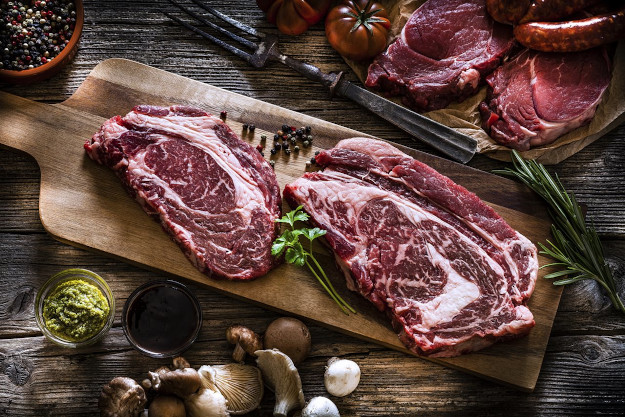Yes, a Small Portion of Beef Can Be Part of a Balanced Diet

Imagine you are preparing for a trip to the grocery store. To meal-prep for the upcoming week, you develop a balanced grocery list with various items spanning the five food groups: fruits, vegetables, dairy, grains and protein. You know protein is essential to a balanced diet and maintaining energy and many products are now boasting protein content, but do you know what foods are healthful high sources of protein? And do you know how much protein you really need?
With 18 grams of protein per serving, eating a small portion of beef is high in protein, easy to prepare and can support a healthy diet. However, only 62 percent of American beef consumers consider ground beef to be high in protein and just 70 percent of them consider beef cuts to be high in protein, according to a recent landmark consumer study conducted by Cargill.
The U.S. Department of Agriculture’s MyPlate site outlines the amount of protein in various key sources. Common portions of beef, such as a small steak or lean hamburger, have more protein than most other options in the food group, like pork, chicken, nuts and seeds, and beans and peas. Stocking up on beef, in addition to other proteins, can help shoppers reach the amount of protein their bodies need to thrive.
According to the USDA Dietary Reference, people should consume about 0.4 grams of protein per pound of body weight as part of a balanced diet. Therefore, someone who weighs 150 pounds needs 60 grams of protein each day. Whether making tacos, steak or burgers on the grill, a small portion of beef is an easy-to-prepare protein option that can contribute to a healthy diet year-round.
Protein helps repair cells, boosts energy and keeps us satiated longer. It sustains you through a long workday, boosts your stamina for exercise, and ensures you don’t get hungry again soon after eating a meal.
People are also increasingly interested in consuming more healthy fats with their protein. Beef is packed with Omega-3 healthy fats that help prevent the risk of heart disease and other chronic diseases. In addition to the nutritional value and protein content, beef can be a cost-effective option that delivers flavor, convenience and cooking versatility.

Even consumers who regularly buy beef struggle with selecting the best cuts for their purpose, and many of them lack an understanding of how to use the USDA grading system as a guide when purchasing beef.
While surveying the meat case at the grocery store, consumers should look for the USDA grades on packaging. Choosing USDA Select grade beef offers a leaner protein source with slight amounts of fat and marbling. For a high-quality cut of meat for a special occasion, a prime cut of beef offers abundant marbling and flavor, but it is not considered lean. The choice grade of beef offers moderate marbling and flavor and is a little less lean than select cuts.
When choosing ground beef, each cut can be a good source of protein and is similar in flavor and tenderness, but varies in fat content:
Ground Beef — 73 percent lean, 27 percent fat
Ground Chuck — 80 percent lean, 20 percent fat
Ground Sirloin — 85 percent lean, 15 percent fat
Ground Round — 90 percent lean, 10 percent fat
Among the five food groups, protein provides consumers with nutritional benefits and the affordability of beef can make it a possible candidate as part of a balanced diet.
© 2016 Brandpoint - All Rights Reserved.
Highbrow Magazine
Image Sources:
Brandpoint
PorscheBryan (Pixabay – Creative Commons)





























































































































































































































































































































